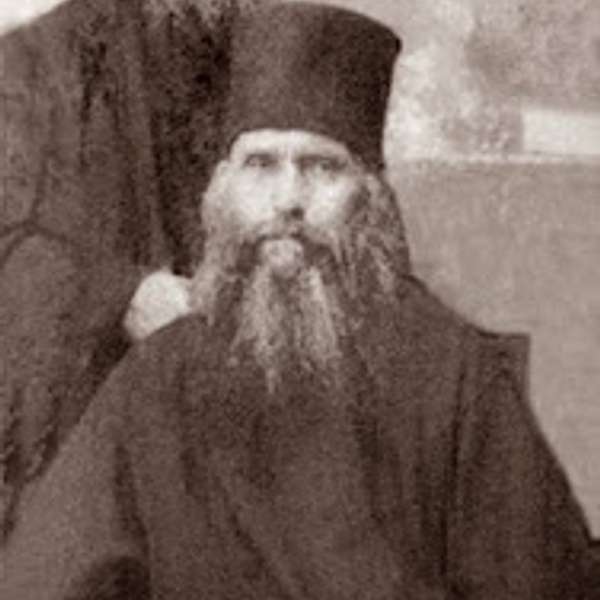
Mystical Theology: Introducing the Theology and Spiritual Life of the Orthodox Church
“Mystical Theology: Introducing the Theology and Spiritual Life of the Orthodox Church”, with Prof. Christopher Veniamin
Mystical Theology: Introducing the Theology and Spiritual Life of the Orthodox Church, with particular reference to the Holy Bible and the witness of the Church Fathers, past and present. Available Units thus far:
Unit 1: Introduction: Holy Scripture, Greek Philosophy, Philo of Alexandria (Season 3)
Unit 2: Irenaeus of Lyons (Season 3)
Unit 3: Clement the Alexandrian (Season 3)
Unit 4: Origen (Season 3)
Unit 5: Athanasius the Great (Season 3)
Unit 6: The Cappadocian Fathers (Season 3)
Unit 7: Augustine of Hippo (Season 3)
Unit 8: John Chrysostom (Season 3)
Unit 9: Cyril of Alexandria (Season 3)
Unit 14: Gregory Palamas (Season 1)
Unit 15: John of the Ladder (Season 4)
Unit 16: Silouan and Sophrony the Athonites (Season 2)
MISCELLANEOUS
Members-only: Special Editions (Season 5)
Empirical Dogmatics: The Theology of Fr. John Romanides (Season 6)
Recommended background reading: Christopher Veniamin, ed., Saint Gregory Palamas: The Homilies ; and The Enlargement of the Heart, by Archimandrite Zacharias ; Christopher Veniamin, ed., Saint Gregory Palamas: The Homilies (Dalton PA: 2022) ; The Orthodox Understanding of Salvation: "Theosis" in Scripture and Tradition (2016) ; The Transfiguration of Christ in Greek Patristic Literature (2022) ; and Metropolitan Hierotheos Vlachos, Empirical Dogmatics of the Orthodox Catholic Church: According to the Spoken Teaching of Father John Romanides, Vol. 1 (2012), Vol. 2 (repr. ed. 2020).
It is hoped that these presentations will help the enquirer discern the profound interrelationship between Orthodox theology and the Orthodox Christian life, and to identify the ascetic and pastoral significance of the Orthodox ethos contained therein.
ACKNOWLEDGEMENTS: I wish to express my indebtedness to the spoken and written traditions of Sts Silouan and Sophrony the Athonites, Fr. Zacharias Zacharou, Fr. Kyrill Akon, Fr. Raphael Noica, Fr. Symeon Brüschweiler; Fr. John Romanides, Fr. Pavlos Englezakis, Fr. Georges Florovsky, Prof. Constantine Scouteris, Prof. George Mantzarides, Prof. John Fountoulis, Mtp Hierotheos Vlachos, Mtp Kallistos Ware, and Prof. Panayiotes Chrestou. My presentations have been enriched by all of the above sources. Responsibility however for the content of my presentations is of course mine alone. ©Christopher Veniamin 2024
Mystical Theology: Introducing the Theology and Spiritual Life of the Orthodox Church
Episode 9: “Tradition & Scripture”; “Three Forms of Prayer”, Saint Silouan the Athonite, with Prof. C. Veniamin
Use Left/Right to seek, Home/End to jump to start or end. Hold shift to jump forward or backward.
Episode 9: “Tradition & Scripture”; “Three Forms of Prayer”
Unit 16: “Sts. Silouan and Sophrony the Athonites: Principles of the Christian Life”, by Prof. Christopher Veniamin
Series: “Mystical Theology"
Based on the reading of excerpts from the Sections, “Tradition & Scripture” and “Three Forms of Prayer”, from St. Sophrony’s masterpiece, Saint Silouan the Athonite, this ninth episode includes such themes as the Holy Spirit in the Church, person vs institution, and the place of pain and suffering in the life of the Christian. Dr. Christopher Veniamin is a spiritual child of St. Sophrony.
It is hoped that these presentations will help the enquirer discern the interwoven character of Orthodox theology and the Orthodox Christian life, and to identify the ascetic and pastoral significance of the Orthodox ethos.
Q&As related to Episode 9 available in The Professor’s Blog.
Recommended background reading: Saint Silouan the Athonite, by St. Sophrony the Athonite; and The Enlargement of the Heart, by Archimandrite Zacharias
Join The Mount Thabor Academy!
MEMBERSHIP TIERS
https://patreon.com/TheMountThaborAcademy
Tier 1 Ask the Professor
Tier 2 Bookclub
Tier 3 Orthodox Bible Study
Tier 4 Private Instruction
ACKNOWLEDGEMENTS: I wish to express my indebtedness to the spoken and written traditions of Sts Silouan and Sophrony the Athonites, Fr. Zacharias Zacharou, Fr. Kyrill Akon, Fr. Raphael Noica, Fr. Symeon Brüschweiler; Fr. John Romanides, Fr. Pavlos Englezakis, Fr. Georges Florovsky, Prof. Constantine Scouteris, Prof. George Mantzarides, Prof. John Fountoulis, Mtp Kallistos Ware, and Prof. Panayiotes Chrestou. My presentations have been enriched by all of the above sources. Responsibility however for th
Join the Mount Thabor Academy Podcasts and help us to bring podcasts on Orthodox theology and the spiritual life to the wider community.
Dr. Christopher Veniamin
Join The Mount Thabor Academy
https://www.buzzsprout.com/2232462/support
THE MOUNT THABOR ACADEMY (YouTube)
THE MOUNT THABOR ACADEMY (Patreon)
Print Books by MOUNT THABOR PUBLISHING
eBooks
Amazon
Google
Apple
Kobo
B&N
Further Info & Bibliography
The Professor's Blog
Further bibliography may be found in our Scholar's Corner
Contact us: info@mountthabor.com...